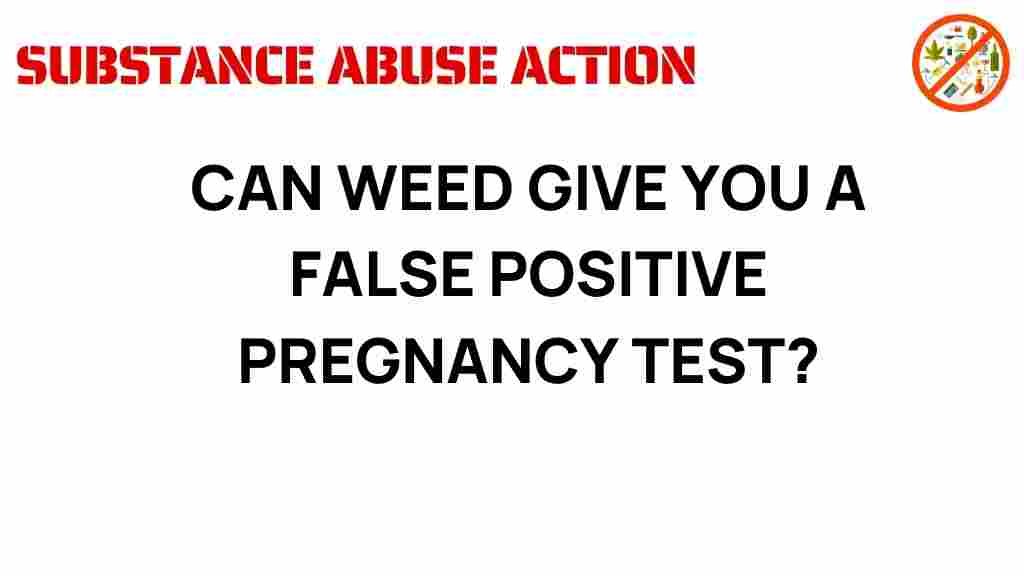Can Weed Really Cause a False Positive on Pregnancy Tests?
Pregnancy tests have become an essential tool for individuals trying to determine if they are expecting. However, the accuracy of these tests can sometimes be questioned, especially with the growing use of cannabis. Many people wonder: can weed really cause a false positive on pregnancy tests? This article delves into the relationship between cannabis use, false positives, and the implications for reproductive health.
Understanding Pregnancy Tests
Pregnancy tests work by detecting the presence of human chorionic gonadotropin (hCG) in urine or blood. This hormone is produced shortly after a fertilized egg attaches to the uterine lining. Most home pregnancy tests are designed to provide quick results, but their accuracy can depend on various factors, including the timing of the test and the sensitivity of the test itself.
Common Myths About Cannabis and Pregnancy Tests
With the increasing legalization of cannabis, various myths have emerged surrounding its use and its effects on pregnancy tests. Let’s explore some of these myths and the realities behind them:
- Myth 1: Cannabis can directly cause a false positive on a pregnancy test.
- Myth 2: All types of drug testing can yield false positives for pregnancy.
- Myth 3: Consuming weed means you cannot be pregnant.
Dispelling these myths is crucial for understanding the true relationship between weed and pregnancy tests.
The Science Behind False Positives
A false positive occurs when a pregnancy test indicates that a person is pregnant when they are not. This can happen due to various reasons, such as:
- Improper testing or timing
- Faulty test kits
- Certain medications or medical conditions
While cannabis has not been shown to directly cause false positives on pregnancy tests, some studies suggest that certain substances in cannabis might interfere with hormone levels, potentially leading to confusion in test results.
Cannabis and Hormonal Effects
Cannabis contains various compounds known as cannabinoids, with THC (tetrahydrocannabinol) being the most well-known. These compounds interact with the body’s endocannabinoid system, which plays a role in regulating various physiological processes, including hormonal balance.
Some research indicates that THC might influence hormone levels related to reproduction, such as estrogen and progesterone. However, the direct correlation between cannabis use and false positives on pregnancy tests remains largely unproven. More research is necessary to establish any definitive link.
Testing Accuracy and Factors Affecting Results
Testing accuracy can be influenced by several factors, including:
- Timing: Testing too early can lead to false negatives or positives.
- Test sensitivity: Some tests are more sensitive to hCG levels than others.
- Interfering substances: Certain medications or medical conditions might affect results.
It’s essential to follow the instructions on the pregnancy test carefully to ensure the most accurate results.
Troubleshooting Pregnancy Tests
If you receive a positive result but suspect it may be incorrect, consider the following troubleshooting tips:
- Retest: Wait a few days and retest. Hormone levels increase rapidly in early pregnancy.
- Consult a healthcare professional: If unsure, a blood test or ultrasound can provide a definitive answer.
- Review medications: Check if any medications could be affecting the test results.
Health Implications of Cannabis Use
The use of cannabis during pregnancy is a topic of concern among health professionals. Some studies suggest that using cannabis can have negative effects on fetal development and overall pregnancy outcomes. Here are some potential health implications:
- Low birth weight
- Preterm birth
- Developmental issues in children
Given these potential risks, it’s crucial for individuals who are pregnant or trying to conceive to be aware of their cannabis use and its possible implications on their reproductive health.
Conclusion: The Bottom Line
While cannabis has not been definitively proven to cause false positives on pregnancy tests, its effects on hormonal balance and reproductive health cannot be overlooked. The accuracy of pregnancy tests can be influenced by various factors, and it is essential to approach testing with caution and awareness.
If you’re concerned about your results or the implications of cannabis on your reproductive health, consult a healthcare professional for personalized advice. Understanding the intersection of weed, pregnancy tests, and reproductive health is crucial for making informed decisions.
For more information on reproductive health and cannabis, check out this reputable source. Additionally, you can explore further details about drug testing and its implications here.
This article is in the category Health and created by SubstanceAbuseAction Team
